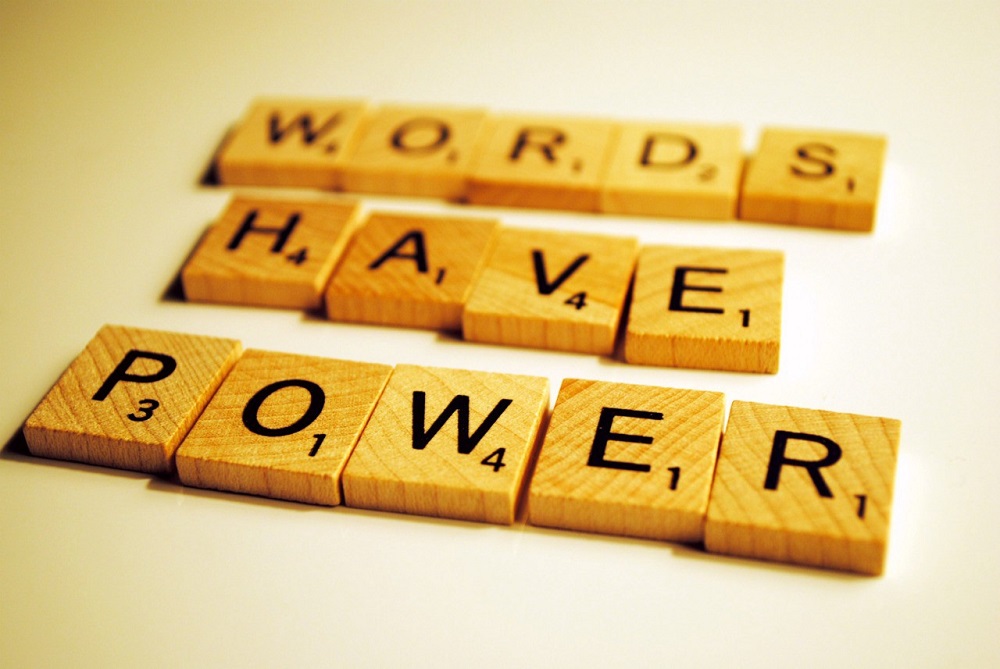Contractions and Proper Speech
A break from politics.

I enjoy Columbia University linguist John McWhorter‘s work but, because it so often touches on racial controversies and tends to be cited by white conservatives in support of positions McWhorter himself disagrees with, I don’t point to it as often as I otherwise might. His latest NYT newsletter/column, “Sometimes ‘Proper’ Speech Isn’t Correct Speech,” steers clear of that particular controversy.
My eldest daughter is in elementary school, and I recently started noticing that she was regularly enunciating “going to” and “want to,” no longer saying “gonna” or “wanna,” as many people do in casual speech. I’d say that most of us, on the fly, are more likely to ask, “What time is it gonna be?” than “What time is it going to be?” So, I decided to gently ask her about this, and she said her teachers had told her that “gonna” and “wanna” are not in the dictionary and one should instead say “going to” and “want to.”
I’m gonna diverge from this guidance.
[…]
To start, “gonna” and “wanna” are in the Merriam-Webster dictionary, with the part of speech for both given as a “pronunciation spelling.” Another way to describe these words is as contractions. They’re not the kind where an apostrophe welds two words together, such as “needn’t” and “shan’t,” but the general notion of combining two words into one is the same.
Perhaps there’s a prescribed pedagogical practice to instruct children to speak without those contractions. Or a philosophical sense that to speak properly is to enunciate the phrase “going to” instead of saying “gonna.” But if it’s anything like that notion, it is unsuitably broad. Possibly my daughter heard the teachers as referring to all speech when they meant something more specific.
But overall, the nut here is how foggily we tend to process that being human entails using a language in two ways — formal and informal — that have differences in vocabulary and grammar. Linguistics as a science includes a subfield called sociolinguistics, and being trained in it includes the understanding that people speak differently in different contexts.
Making that point initially struck me as hammering on something rather obvious. However, I’ve realized that it can be hard for people to quite get past an idea that written language, in its permanence and formality, is the real thing, while casual speech can be seen as a mere approximation, full of messy floutings of rules.
It makes sense to tell students to avoid contractions such as “gonna” and “wanna” in formal language, since there’s a long tradition in English of doing so and traditions die hard. But there’s also a tradition of using contractions that, similarly, dies hard. Contractions are a natural consequence of uttering words close together repeatedly over eons of time.
[…]
Contractions don’t impede clarity: The word “don’t” in the preceding phrase is clearly a combination of “do” and “not.” Everyone reading this understands that. Avoiding contractions in formal language is more a stylistic rule than a necessary one. Why, then, shouldn’t we let contractions play in casual speech, which we engage in much more, using language intuitively, comfortable in the persuasiveness of our informality? Indeed, I hear the school’s teachers speaking casually from time to time, and I can attest that they routinely say “gonna” and “wanna” — as they should!
This seems quite right to me. My speech is considerably less formal—and more profane!—than even my informal writing. Even in text messages, I wouldn’t use “gonna” or “wanna” because I’ve been trained to write more formally. But I certainly use those constructions in conversation. I must admit, though, that I’ve never thought of them as contractions, although they certainly perform the same function.
McWhorter actually goes further, though, arguing that speaking as we’ve been taught to write can be improper:
I suggested to my daughter that she reconsider following this particular advice given by her teachers, at least when she isn’t around them. But I also recognize that the fact that she learned the lesson so well may be evidence of just how effective her teachers are. Before she and I talked about it, I hadn’t heard a “gonna” or “wanna” from her in months. Perhaps being the child of a persnickety dad who crosses his ankles when he sits in an armchair had something to do with her receptivity to the idea? We may never know, but I’m worried that other kids might sense it as an affectation, a kind of precocious fuddy-duddyism. I want her to speak well, of course, but to be able to do that both formally and informally.
And in a way, speaking casually but without contractions is a way of not speaking well. I think of a scene from the latest season of HBO’s wonderful “Barry.” In the fifth episode, a character insists on taking over a grim task in a pressure-packed situation and says, with increasing urgency, “And I’m gonna do it … I’m doing it. Do you hear me? I’m gonna do it!” It would have been tone-deaf if this character had used “going to” rather than “gonna” and said, “And I’m going to do it … “I’m going to do it!” In casual speech, what’s “proper” in such an instance is “gonna.”
After we talked about this issue, my daughter wryly said to me and her sister, “My dad is teaching me not to speak well!” Ah, the plight of the linguist parent. I have no doubt that she’ll grow up able to speak “well,” but part of speaking well is being able to speak right. I wanna make sure she can.
Even though I subscribe to HBO Max, I’ve never seen “Barry.” But I can think of a contrary pop culture example. The character on “Longmire” played by Lou Diamond Phillips, Henry Standing Bear, is notable for never using contractions, even in the most casual conversations. This character trait was established in the book series on which the show was based and was quite deliberate.
Literature professor Andrew T. Burt offers some reasonable conjecture:
I find this character trait fairly compelling. It works literally and metaphorically as a choice that is beyond diction. It says something about Henry’s personality and code of ethics that is not easily tangible.
[…]
Creator Craig Johnson endorsed one possible reason according to a fan who attended a book signing: “He mentioned a scene that got cut that he really wish had been included. In the scene Branch and Henry are conversing. Finally at the end of the conversation this happens (paraphrased): Branch: ‘Why don’t you ever use contractions, anyway?’ Henry: ‘What is the hurry?’ Johnson also endorsed Lou Diamond Phillips’ portrayal of the character, telling Wendy Wilkinson that “Lou was the only one who auditioned for the role of Henry Standing Bear who dropped all the contractions from his scenes,” Johnson said. “From that, I knew he’d read the books.”
Either way, the character talks like most of Johnson’s native characters, yet refuses to use contractions. I contend that it also has something to do with his straightforward, ethical code. He is very precise and wants to make sure that he gets his point across so no one can misconstrue what he is saying. He shows that he understands what they tell him, but he also wants them to know that he is a fastidious and dedicated individual who will stand by his word and stand by them. He effectively explains himself clearly and concisely without the need for shortcuts.






I think McWhorter is good at catching the tensions in language as it changes, as it always does. I dont know if he has any preferences on change but he seems to generally support accepting change when it is clear it is part of how we really speak rather then how we are supposed to speak. He also recognizes the difference between everyday and formal speech. I like his approach and agree with him.
Steve
Immagonna disagree with McWhorter. I would characterize “gonna” and “wanna” not so much as contractions, or even “verbal spellings”, but as verbal slurring. Contractions are common in writing. “Gonna” or “wanna” are common in speech, but, except as dialogue, I’ve almost never seen them written out except as the subject or in “”.
Some years ago I read “The Maltese Falcon” and a few other things by Dashiell Hammett. I remember being struck by his frequent use of double contractions like “I’d’ve” and “couldn’t’ve”. I don’t know if that was a writing trick to sound more vernacular or if such usage was more common in the 20s. (If you get a chance to see it, there’s a 1931 film version of The Maltese Falcon that’s a lot closer to the book, and way more sexually explicit, than the 1941 Bogart/Huston version.) I was watching some Star Trek TNG recently. They did the thing about Data not using contractions, but unlike Lou Diamond Phillips he wants to. It’s irritating. He can learn social graces. He can teach himself alien languages in minutes. Contractions are listed a words in the dictionary, presumably including the dictionary Dr. Sung loaded into him. But he can’t teach himself to say “can’t”?
This is one of those things where I wouldn’t try and correct what my daughter is doing. She will figure it out. The social context determines a lot about how we speak, not teachers. And kids soak this stuff up. They can easily figure out what they can do with Dad that they can’t do with Mom, for instance. Or vice-versa.
I’m surprised that McWhorter doesn’t seem to see that language is a tool. And learning to control that tool is a valuable skill. Children learn the contraction speech in everyday life, but the formal is something that needs practice. The teacher’s explanation of why to not use contractions was weak, but them most of the time the real value was lost generations ago.
I noticed this 30 years ago in Hawaii when it was reported the schools would now permit students to speak ‘pidgin’ instead of enforcing proper English. While the abuse of students in decades past was wrong, not helping students gain control of language as a tool was also wrong. And where better to practice than enforcing the use of proper speaking/writing in school. But I do advocate being straight with students rather than making up some lame excuse or abusing students. After all, at some point you’ll need something from someone who will judge you by your speech so being able to manipulate them by using language as tool adjusted for the situation is to the student’s benefit.
As a former public speaker, speech coach, and English teacher, I can be a real stickler for proper pronunciation and word usage–where appropriate. On the other hand, I loves me some colloquialisms!
In McWhorter’s example from TV, he’s potentially incorrect, depending on context. (I never saw the show). Being more “formal” in speech–even in highly tense situations–can bring a distinct emphasis that being colloquial can’t. “I am going to do it!” emphasizes absolute intent.
“I’m gonna quit smoking” (eh… maybe… I kinda wanna, but… y’know)
“I am going to quit smoking” (I mean it!)
The other aspect of understanding how to use a more formalized speech pattern–even in casual situations–is that many of those colloquialisms (what McWhorter refers to as contractions)–are regional. If I’m speaking to someone for whom English is a second language, or who learned English natively in Europe or Africa, saying “gonna” or “wanna” may not be understood.
Language is about communication. Communication requires understanding and some form of shared lexicon. We often take for granted the words we use every day with those in our shared local culture. We forget that not everyone shares that same lexicon. It’s the old saw about “two countries separated by a common language”.
To emphasize the need for diction and clear word usage, I would write the following on the whiteboard for my business classes:
Djeet?
Nah. Djoo?
Nah. B’slunge. Mungry.
Yah. Wajawan?
Dno. B’mungy.
Yah. Sgo.
If I said that around these parts, everyone would understand. Students who are considered “fluent” in English (and had been speaking it for 30-40 years) had no clue what any of that meant.
🙂
P.S. I’m still trying to figure out how to spell the contraction for “all right?”. A’aight?
@gVOR08:
The Data contractions thing never made sense.
It was a plot device to tell him apart from Lore and simulations of him. Plot devices are best when they make logical sense, or can be discarded after one use.
@Mu Yixiao: I believe I’ve seen “awright ”. I think most people get at least a little “r” into it.
@gVOR08:
Not around the Great Lakes. There’s no ‘r’ in it at all (which is why it’s so fun). It’s a slightly drawn-out “ah” which blends directly into “aight” (ai=a long I sound), with a barely perceptible “t” at the end, and a rising tone on the “ai” sound.
Hah! Trying to find a YouTube video, I came across this:
The Midwestern translator (and bottle opener).
One time I looked back at a novelette I wrote at age 14, and I noticed that the dialogue contained the word “gonna,” but the general text didn’t. Without being consciously aware of it, I followed the distinction between formal and colloquial speech.
In ESL manuals, you’ll see “gonna” defined very specifically, because contrary to popular belief, you can’t change going to to gonna in all contexts (“I’m gonna the store”). This fascinates me because there’s this myth a lot of people harbor that colloquial speech is senseless, and that the only “rules” of language are those being taught in a schoolroom or by scrupulous parents. Human language always naturally organizes itself into rules that most people have no conscious awareness of.
@Kylopod:
This hit me hard when I was teaching EFL in China. I hold that I learned more about the English language in 4 years doing that than in the preceding 44 speaking it.
The number of times that I’d get asked questions I’d have to stop and think hard about was astounding (What’s the difference between prize, reward, and award? What’s the difference between Heaven and paradise?).
And sometimes the only answer was “Because it’s English.”
@JKB:
Interesting point. I’m’a gonna think on that…
😉
@Kylopod:
Oh.. and the fun thing about “I’m going to the store” is that it’s present tense but refers to what you will do in the future.
@Mu Yixiao: When I was in Peace Corps I learned a lot of my Twi from listening to non-English speakers and one of my techniques was writing down a word I heard that I didn’t understand and the next time I found an English speaker I would ask them what it meant. Any number of times they would reply, “That’s not a word.” On a few occasions I heard them actually use it moments later, but they would deny it when I brought it up. It took me a while to understand that I was asking them the meaning of the equivalent of “juwanna” (do you want to) or “meenmie” (me and my).
@Mu Yixiao:
Djeet? (got it)
Nah. Djoo? (got it)
Nah. B’slunge. Mungry. ( I think the lunge is ‘lunch’ but what’s the ‘B’s’?)
Yah. Wajawan? (got it)
Dno. B’mungy. (‘Don’t know, I got, but, ‘B’mungy’? No idea)
Yah. Sgo.
@MarkedMan:
B’slunge = “But it’s lunch”
B’mungry = “But I’m hungry”
@Mu Yixiao:
Some time ago I realized that one my greatest pleasures was finding out something about myself, something I did or said, or understood or didn’t understand, perceived or didn’t perceive I wasn’t even aware was a thing. Something I never even thought about. And definitely get more pleasure from learning I am unable to perceive something that other’s can than the reverse. It’s the closest I ever get to the blind person understanding sight or the deaf one understanding what it is to hear.
These articles always amuse me because I immediately think of how much better the article would be if they focused on motherfucker and all it’s possible contractions instead.
While we might say or write muthafucka or even mofo in casual usage, in business settings, the more formal motherfucker is preferred.
@Mu Yixiao:
Yes. Technically English doesn’t actually have a “future tense,” even though it’s got a sort of de facto one with the word “will” (and “shall,” and “gonna”). People use the present tense and present progressive to describe intended future action all the time (“I’m visiting the doctor tomorrow”).
@gVOR08: I will note in passing that “gonna” and “wanna” constitute “verbal spellings” in that they record what was the person actually said, but yeah, the phenomenon being captured is eliding two words together.
Now if I could only figure out how they became “gonda” and “wanda” in Belfast…
@Just nutha ignint cracker: Another thing is that they are actually kind of semi-standardized spellings for words that have more variety than these spellings capture. For example, when “gonna” comes at the end of a sentence, I’ve noticed a lot of people pronounce it “gonnu.” But you’ll almost never see it transcribed this way.
@Mu Yixiao: Well, since in my part of the country we don’t flatten the liquid /r/, its “a’right,” “ah’right,” “aw’right,” or “uh’right” (which should probably be avoided because it will be misread in oral reading).
@Gustopher: Not always. Morrison Foester (the law firm) is “MoFo.” https://mofo.com
@Kylopod: Where I live, it’s almost always pronounced “gonnu(h),” not just at the end of a sentence. The /ah/* becomes a schwa because it’s not accented.
*I’m too lazy to look up both (a) which of the 5 or 6 “a” vowels this one is and (b) how to code in the correct ASCII symbol.
@Mu Yixiao:
It was McWhorter who observed that all spoken languages change with time, and pictographic writing forms have a distinct advantage over phonentic because they generally remain intelligible across the various dialects, which before modern media, were locally inevitable.
If it’s easier to pronounce and still intelligible that’s what people are going to use. French was the example he liked to cite most. All those extra silent letters represent sounds that were once pronounced but people got sick of doing so. Hence, “Duquesne” became “doo-cane”.
Time for me to sign out for the weekend, but I leave you with this comment left on one of the YouTube channels I watch:
@Just nutha ignint cracker:
I wasn’t talking about a schwa, I was talking about an “oo” sound, because it’s preserving that it’s derived from the word to.
I occasionally also run across a pronounciation that preserves the “oh” sound at the beginning. Instead of “gaw nuh” (which is how I usually hear it), it’s “go nuh.” (The song “Are You Gonna Be My Girl?” by Jet does this. Maybe it’s an Australian thing, or their imperfect attempt at an American accent. But I think I have heard Americans do this.)
In French, German, and British certain structures in their language are used to indicate formality and social class. Americans do less of this in their speech. Every American politician is just another Bubba to hear them speak. If you listen to a movie from the 1930s, the boss speaks differently than the guys on the dock; this distinction has changed in our society. We still have status markers like everyone else, but we use other means.
@Kylopod:
“go nuh” as by Jets would be the average midlands/northern English pronunciation (as a very generalised approximation).
And def. not an attempt at Americanism.
“gaw nuh” would probably closer to rural south western.
Possibly. 🙂
@JohnSF: There’s 3 or 4 (at least) inflections between /go (as in “do not pass”) nuh/ and /gaw (rhymes with “law”) nuh/. The most common one where I live is probably /gun (as in 2nd Amendment) nuh/.
And we still don’t account for the people who say /gone da/ (such as my Belfast relatives–but the older ones are all dead now, so it could be that /gone da/ has expired).
@Just nutha ignint cracker:
And in southern England you have still got older middle class modified-RP users, who would definitely say “going to” (goewing tuw).
Unless drunk, LOL
The Hives, in the early aughts, had a minor hit with Hate To Say I Told You So which heavily features both “gonna” and “wanna”. Not incidentally but as foci.
The interesting bit is the band is from Sweden and the singer has English as a second language. I don’t even think there is Svenska version of this song. The OG version is in English. Like ABBA only way cooler.
It is a truly kick ass song (and video). Highly recommend. If you like rock, this song will kick your ass.
I spent a bazillion dollars in early 1980s money on college classes in linguistics. Private college money, mind you.
I loved it. Thought it was fascinating. Still do.
I was one of those naive fools that thought that higher education was about a broad liberal arts education that included all the salient subjects, and not as a gussied up trade school what with majors and minors.
Who the fuck wants to major in Business or Marketing? What could be more boring and unsexy? Intro to Anthro or Logic 201 seemed much more compelling at the time.
Basically I took whatever classes interested me most. I was not thinking job, I craved knowledge, or at least in-depth curated exposure. I took an art history class and a drawing class ffs because I felt internally obligated to do so. Linguistics, Philosophy, English, French, Composition, History, Psychology, what have you.
In order to graduate, I had to declare a major and fulfill the credit requirements. I found an alternate path: create your own multidisciplinary major. I found a faculty advocate, crafted a proposal that squished cherry picked credits into a whole in 8 pages of bullshit. But it was well reasoned, logically constructed, well argued bullshit.
The mathematics was never really useful, but almost everything else paid dividends later in life. I am a mile wide and an inch deep which I feel is an extremely undervalued state.
I was not schooled to be fit for a job, I was educated.
I ended up in IT by accident. Data management, analysis, DBMS, cleansing, and retrieval mechanisms and made enough to (basically) retire before I was 50.
Linguistics and logic education helped me most in my professional life. Not the what’s of it, but how you approached it.